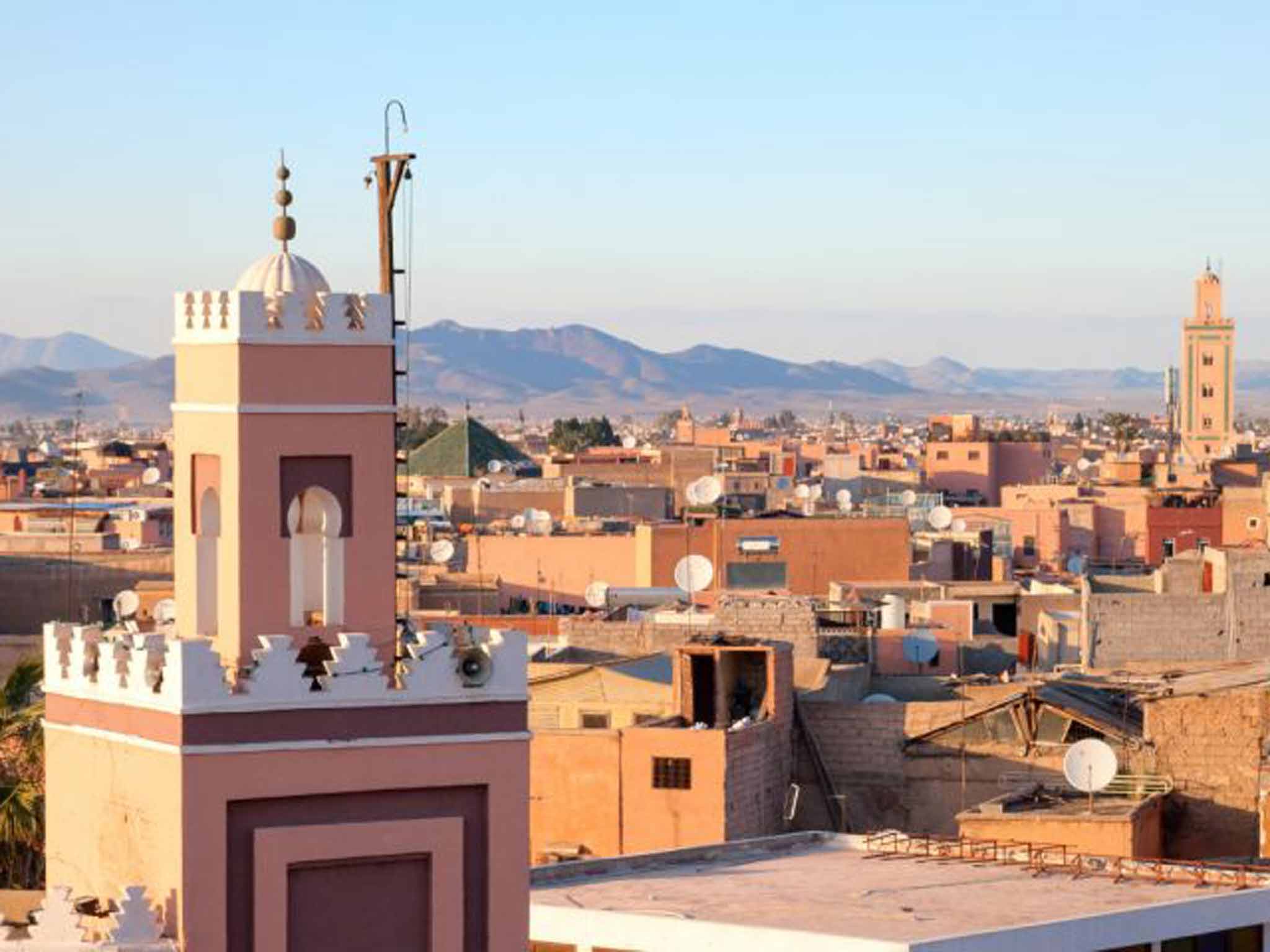Travel Question of the Day: What should I do about travel money for Morocco?
Have a travel question that needs answering? Ask our expert Simon Calder

Your support helps us to tell the story
From reproductive rights to climate change to Big Tech, The Independent is on the ground when the story is developing. Whether it's investigating the financials of Elon Musk's pro-Trump PAC or producing our latest documentary, 'The A Word', which shines a light on the American women fighting for reproductive rights, we know how important it is to parse out the facts from the messaging.
At such a critical moment in US history, we need reporters on the ground. Your donation allows us to keep sending journalists to speak to both sides of the story.
The Independent is trusted by Americans across the entire political spectrum. And unlike many other quality news outlets, we choose not to lock Americans out of our reporting and analysis with paywalls. We believe quality journalism should be available to everyone, paid for by those who can afford it.
Your support makes all the difference.Q I've just realised you can't get Moroccan dirhams in England. Do you know if it's best to get some at the airport, or just use an ATM when I get there? Or is it worth taking euros? The guy picking us up from the airport quoted a price in euros, so can we just use them instead?
Emma Henderson
A Morocco is one of a (thankfully dwindling) number of countries that restricts the movement of its currency, the dirham. The Foreign Office says: “The Moroccan Dirham (MAD) is non-convertible. You can import or export up to a maximum of 1,000 MAD to or from Morocco.” That’s about £80-worth.
The tourist board warns that the dirham “cannot be converted outside the Kingdom's borders”. Currency dealers in France, Spain and Algeria may dispute that last assertion, but from a British holidaymaker’s point of view there is no point in trying to get dirhams before you leave. Instead, just bring cash and change it, little and often, when you get there.
If you happen to have some euros from your last trip to Europe, then do bring them along; the narrowest “spread” between buying and selling rates are for euros. But pounds are also acceptable – so long as they are Bank of England notes (as opposed to Scottish or Northern Irish) and in reasonable condition.
Why not change a big slab of cash all at once? First, you will probably not get a particularly good rate at the airport when you arrive; you will probably find better deals in town at hotels or bureaux de change (you’re looking for a rate of 12.5 dirhams to £1).
Next, when you change back surplus dirhams to “hard currency” (sterling, euros, dollars, etc) at the end of your stay, you are allowed only half the amount that you changed during your visit – this will not prove a problem if you have bought dirhams as you go along, so long as you remember to keep all receipts.
Finally, the Foreign Office warns “It‘s very difficult to exchange travellers’ cheques,” and I agree. If you want a back-up, bring a debit card – but use it in an ATM only as a last resort, because you’ll lose a small fortune in fees.
Every day, our travel correspondent, Simon Calder, tackles a reader’s question. Just email yours to s@hols.tv or tweet @simoncalder
Join our commenting forum
Join thought-provoking conversations, follow other Independent readers and see their replies
Comments